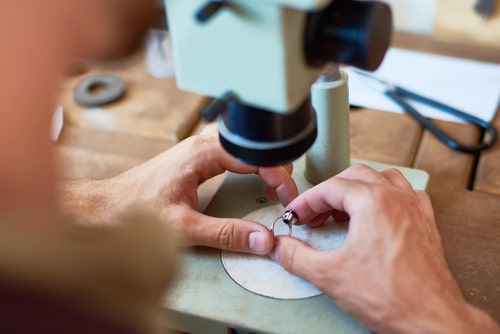- February 21, 2018
- Posted by: pawnusa
- Category: blogs

We all have cash flow problems with real estate taxes, income taxes, holiday gift buying season and much more. Often important gift giving occasions occur at the worst time. Used items are sold everywhere; on the internet, resale shops and pawn shops.
Serial Numbers
Bicycles, computers, musical instruments and other merchandise have serial numbers. In most states pawnbrokers are required to frequently submit a list of items received including identifying numbers to the law enforcement agency, usually the city police, that has jurisdiction at the pawnbroker’s location. The provided data for these items can then be compared to the list of reported stolen items. If any identifying numbers have been tampered with this is a probable sign that it is a stolen item. All reported stolen items are returned to the victims, therefore, it is not in the interest of the pawnshop owner to accept them. The shops also can obtain these lists and check if the merchandise being pawned is posted.
Suspicious Behavior
The pawnbrokers realize that the reputation of their business is at stake and often ask questions relating to the item being presented. If the seller doesn’t know much about the saxophone they brought or they cannot identify the people in the pictures on cell phone they want to sell it is an indication that the item might be stolen. An employee with savvy and a good sense about people and merchandise is invaluable to a pawnshop.
IDs and Cameras
Today most pawn shops have security cameras in their establishments both for their own safety and for the data that can be obtained from the videos which can be used to identify the seller along with the goods for sale. It is one of the easiest ways for a thief to be identified to the police.
Many pawn shops also require identification from the seller. They maintain careful records using the identification provided by the person selling an item or requesting a loan. Some shops even require fingerprints which can be checked against a database of known thieves should the item be in question.
Holding Period
It is a requirement that pawnbrokers hold an item, usually somewhere from 30 to 90 days, before reselling it. Most people think this is to enable the owner to buy it back or repay the loan provided but it is also for the police to have time to investigate and prevent “fencing.”
Thieves Beware
All pawnbrokers are required to be licensed. Most enforce preventative measures to prevent buying stolen merchandise. According to the NPA (National Pawnbrokers Association) 2017 statistics, as few as, 10 items of 10,000 are involved in ownership disputes.
You would most likely be purchasing stolen wares from the internet or at swap meets in streets and back lots.
